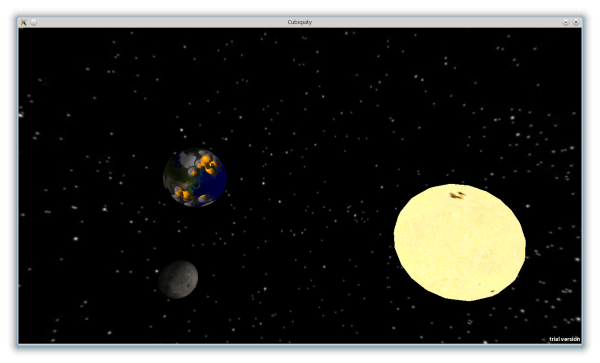Well it’s taken me a few weeks of on and off work but I’ve got Cubiquity working on Linux as a Unity3D add-on. You can try it right now from the Git repository and as long as everything works correctly, it will be available in the next official release.
Porting
There are two essential parts to Cubiquity: the core Cubiquity code where all the magic happens and a thin wrapper providing a C interface to allow easy interaction with Unity’s C♯ code. Cubiquity builds heavily upon PolyVox which has been working on Linux for years now so at least we had a good base to work from. Like PolyVox, Cubiquity is written in C++ which makes it easily portable meaning I had to only make a few trivial changes to the code to get it to build. After a few tweaks to the CMake files, we had a libCubiquityC.so file built and ready.
In order to ease installation and avoid library mismatches, we decided that statically linking all that we could was the best option. Luckily, Cubiquity has few 3rd-party dependencies — in fact it only depends on the C++ standard library and two small Boost libraries. Boost was only being used to fill in features which are now part of C++11 and so by increasing our compiler requirement we could remove the Boost usage entirely. Once here it was simple enough to statically link in libstdc++ and avoid and difficult dynamic library requirements.
For testing purposes, David sent me a simple Unity application which had been exported for Linux and used Cubiquity to create a simple terrain. The idea was that I should be able to place the libCubiquityC.so alongside the executable and the Mono runtime would find the library and load the appropriate stuff from inside it. With a bit of tweaking of the C♯ loading script and recompiling the library as 32-bit (because the Unity app I was using was 32-bit) I was able to run the Unity application and have it render a terrain.
As you can see in that last link, the terrain was not rendering properly and so David set to work getting the shaders working correctly and fighting with some tricky Unity bugs and now it all seems to be working well.
What’s next
Getting Cubiquity working on Linux, as well as being an end in itself, is a useful step towards getting it running on OS X. We are compiling it with both GCC and Clang (which is the OS X compiler) to make sure the code stays portable. In the medium-term we’re working towards being able to easily build the library for all our supported platforms from one place and so I’ve been investigating cross-compiling from Linux to both Windows and OS X. I will give a more detailed description of what I’m doing in a future post but we do already have DLLs and DYLIBs building and they are undergoing testing at the moment. Once we’re confident in the Linux build, we will work on testing out OS X support.


